Still stuck with that tendon pain that won’t go away? You ice it. You stretch it. Maybe you take painkillers. But you end up right back where you started in a few days. Why? Most pain treatments just hide symptoms. They don’t fix what’s broken deep inside your tissue.
What if you could target the root cause instead? That’s exactly why scientists are turning their attention to peptides like TB‑500, GHK‑Cu, BPC‑157, and growth hormone stimulating peptides. These compounds don’t just numb pain they’re being studied for their potential to actually repair damaged tendons at the cellular level.
Here’s what research shows. One peptide can boost growth hormone receptors by more than double. TB‑500 helps make new blood vessels key for tissue repair. GHK‑Cu supports collagen production in lab tests. And BPC‑157? It’s been shown in preclinical models to speed up tendon healing and reduce inflammation.
Have you had to stop workouts because of tennis elbow? Or maybe Achilles pain slowed you down? You know how hard this is. Peptides for tendonitis research focuses on root causes. Not just quick fixes.
Explore BPC-157 from Direct Peptides Turkey, a stable gastric pentadecapeptide that promotes nitric oxide synthesis and reduces inflammatory cell migration for comprehensive tissue protection research.
Growth hormone receptors are like tiny switches on tendon cells. When activated, they trigger fast-acting internal signals specifically the JAK2-STAT5 cascade.
What’s the significance of that? Well, the STAT5 protein moves into the nucleus and turns on genes linked to IGF-1 and enzymes called matrix metalloproteinases. These are involved in cellular growth and tissue remodeling key components in tendon recovery.
Studies on peptides for tendonitis show increased growth hormone receptor density in injured tendons, suggesting the body is naturally trying to repair itself. Want to understand how this cellular repair process could change everything? Researchers believe that specific peptides could amplify this process, potentially helping tendons heal more effectively at the cellular level.
Checkout TB-500 from Direct Peptides Turkey, also known as Thymosin Beta-4, a peptide that enhances cell proliferation and helps tissues regain strength and elasticity in laboratory studies.
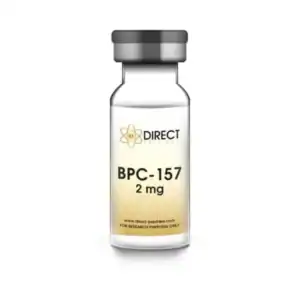 Think of proteoglycans as tiny water balloons scattered throughout your tendon. They hold water and act like cushions, separating collagen fibers and giving the tissue its flexibility.
Think of proteoglycans as tiny water balloons scattered throughout your tendon. They hold water and act like cushions, separating collagen fibers and giving the tissue its flexibility.
Why does that matter? When these structures lose water like overnight when you’re not moving the tendons stiffen. That’s why mornings often feel tight. Once the tissue rehydrates, motion becomes easier.
Damaged proteoglycans don’t hold water the way they should. This impacts how the tendon moves, bends, and absorbs force. Looking for a way to restore natural tendon flexibility without invasive procedures?
Researchers studying peptides for tendonitis are now asking whether these compounds might help restore proteoglycan function in damaged tissue, making tendons more resilient and flexible again.
Discover GHK-Cu from Direct Peptides Turkey, a copper peptide that encourages new blood vessel formation and activates multiple growth factors for advanced regenerative research applications.
Healthy tendons are meant to be able to bend and stretch. When they lose that flexibility, things start to go wrong.
Lab research shows that flexible tendons can spread out the mechanical load across many fibers. Rigid tendons? They focus stress in just one area, making re-injury far more likely.
Proteoglycans play a major role here. They allow collagen fibers to shift slightly during movement. That subtle motion helps prevent tendon fibers from tearing under pressure.
Peptides for tendonitis are being studied for their potential to help restore this kind of functional flexibility. The goal isn’t just tissue regrowth—it’s to help tendons move like they used to, without fear of the next pull causing another setback.
Explore Peptide Supplies at Direct Peptides Turkey for all your reconstitution requirements.
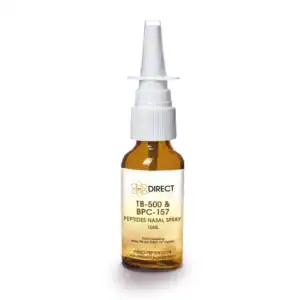 Tendons can stretch about 8% before they rupture. Cross that line, and damage happens fast. Stress concentrations localized areas where force builds up become weak spots that tear easily.
Tendons can stretch about 8% before they rupture. Cross that line, and damage happens fast. Stress concentrations localized areas where force builds up become weak spots that tear easily.
Research on GAG-depleted tendons shows that these stress points often form near bone insertions, where the tendon structure changes. These zones become softer and more vulnerable.
That’s why peptides for tendonitis are under investigation with advanced biomechanical tools. Ready to explore research that could prevent re-injury cycles? Scientists are looking at how these compounds might influence the structure of healing tissue and prevent weak spots from forming again.
Here’s something most people don’t realize bone insertion sites have poor blood supply. Instead of getting nutrients from direct blood flow, these regions rely on diffusion, which makes healing slower and harder.
Plus, the anatomy gets complicated. Tendon turns into fibrocartilage, then calcified cartilage, and eventually bone. Each layer has different mechanical properties. So when you move, the force doesn’t transfer evenly. It builds up where soft tendon meets hard bone, causing microtears.
Not sure why your tendon pain keeps returning to the same spot? This is exactly where most chronic tendon injuries occur. That’s why much of the research into peptides for tendonitis is laser-focused on these insertion sites because if they can heal properly, re-injury might be avoided entirely.
A single microtear can trigger a chemical domino effect. Sensory nerves release Substance P, a neuropeptide that activates mast cells—those guys that flood tissue with inflammatory compounds.
Initially, this is part of your body’s repair strategy. But when Substance P sticks around, it turns into a problem. Chronic exposure leads to more inflammation, more pain, and slower healing.
What if you could break this pain cycle before it becomes permanent? Peptides for tendonitis are being studied in this context. Can they interrupt the Substance P cycle and help return the tissue to a normal healing state? That’s the hope many researchers are working toward.
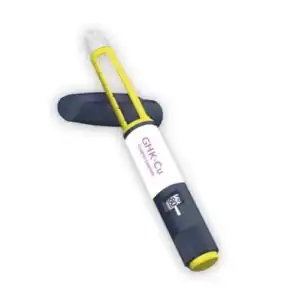 Here’s a frustrating reality your pain may not be from the injury anymore it may be from your brain. After months of pain signals, the nervous system can get confused. It starts interpreting normal movement as dangerous.
Here’s a frustrating reality your pain may not be from the injury anymore it may be from your brain. After months of pain signals, the nervous system can get confused. It starts interpreting normal movement as dangerous.
So even light stretching or casual activity starts to hurt. Your body thinks it’s protecting you, but it’s actually working against your recovery.
Ready to understand why conventional approaches keep failing you? That’s another reason peptides for tendonitis are under the microscope. Scientists are exploring whether certain compounds might not only help with tissue repair but also calm down an overactive pain response, making recovery feel more like recovery and less like a setback.
What would it mean to finally fix the root problem instead of managing it forever? Imagine addressing the cellular mechanisms that keep your tendon trapped in a cycle of incomplete healing. That’s the future researchers are chasing.
Some are now combining multiple peptides for tendonitis in time-release delivery systems that activate exactly when tendons need support. Back when your injury first happened, maybe you figured it would heal in a few weeks. But now, nano-formulations are being designed to target places traditional treatments can’t even reach.
Curious what this could mean for your recovery timeline? Labs using peptides for tendonitis are exploring customized combinations that work with your body’s repair signals not against them. The goal isn’t just pain relief it’s lasting recovery. A future where injuries don’t drag on for months. Where healing means healed.
[1] Chang CH, Tsai WC, Lin MS, Hsu YH, Pang JH. The promoting effect of pentadecapeptide BPC 157 on tendon healing involves tendon outgrowth, cell survival, and cell migration. J Appl Physiol (1985). 2011 Mar;110(3):774-80.
[2] Cushman CJ, Ibrahim AF, Smith AD, Hernandez EJ, et al. Local and Systemic Peptide Therapies for Soft Tissue Regeneration: A Narrative Review. Yale J Biol Med. 2024 Sep 30;97(3):399-413.
[3] Fu SC, Cheuk YC, Chiu WY, Yung SH, et al. Tripeptide-copper complex GHK-Cu (II) transiently improved healing outcome in a rat model of ACL reconstruction. J Orthop Res. 2015 Jul;33(7):1024-33.
[4] Doessing S, Heinemeier KM, Holm L, Mackey AL, et al. Growth hormone stimulates the collagen synthesis in human tendon and skeletal muscle without affecting myofibrillar protein synthesis. J Physiol. 2010 Jan 15;588(Pt 2):341-51.
Explore ALL Peptide Stacks from Direct Peptides Turkey today, your trusted supplier of premium clinical-grade peptides online.
Traditional tendonitis treatments generally focus on reducing pain and inflammation, while peptide research explores how specific molecules may influence tendon repair processes at the cellular level. Scientists study peptides for their potential effects on collagen synthesis, blood vessel formation, and tissue remodelling. These approaches differ because peptide research aims to understand root-cause mechanisms rather than temporary symptom management.
Persistent pain, stiffness, swelling, weakness, or difficulty performing previously manageable movements may indicate incomplete tendon healing. These symptoms can result from collagen disorganisation, ongoing inflammation, or reduced tissue flexibility. Researchers study cellular and molecular markers, including peptide signalling pathways, to better understand why some tendons fail to repair efficiently.
Tendonitis is the short-term inflammation of a tendon, while tendinosis refers to long-term tendon damage with little inflammation. Tendinopathy is a general term that includes both conditions and other tendon problems. Understanding the differences between these terms helps researchers study how injuries and stress affect things like collagen repair and cell signalling.
Current research examines whether certain peptides may affect long-standing tendon changes such as reduced flexibility, altered collagen alignment, or persistent inflammation signals. Chronic tendon issues often result from repeated microtears and incomplete healing, so scientists study peptides to better understand how they might interact with these processes at the cellular level. Evidence remains early and exploratory.
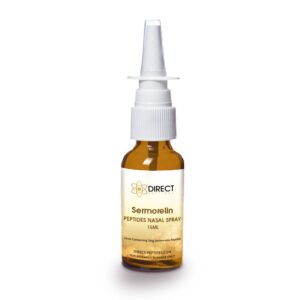
Sermorelin Nasal Spray
£24.54 – £44.08Price range: £24.54 through £44.08 Select options This product has multiple variants. The options may be chosen on the product page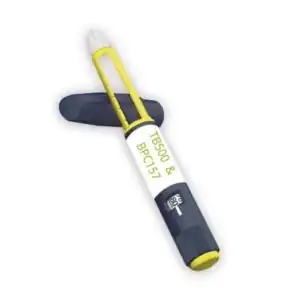
TB500 BPC157 20mg Pre Mixed Pen
£79.58 – £214.87Price range: £79.58 through £214.87 Select options This product has multiple variants. The options may be chosen on the product page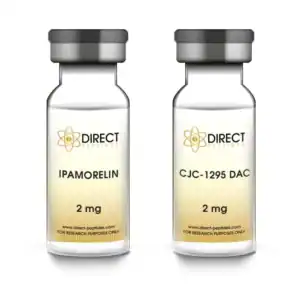
Ipamorelin CJC-1295 DAC Peptide Stack
£32.92 – £41.90Price range: £32.92 through £41.90 Select options This product has multiple variants. The options may be chosen on the product page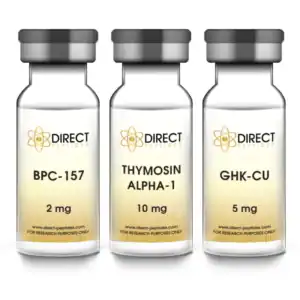
BPC-157 Thymosin Alpha-1 GHK-Cu Stack
ALL CONTENT AND PRODUCT INFORMATION AVAILABLE ON THIS WEBSITE IS FOR EDUCATIONAL PURPOSES ONLY.
DISCLAIMER: These products are intended solely as a research chemical only. This classification allows for their use only for research development and laboratory studies. The information available on our Turkey Direct Peptides website: https://direct-peptides.com is provided for educational purposes only. These products are not for human or animal use or consumption in any manner. Handling of these products should be limited to suitably qualified professionals. They are not to be classified as a drug, food, cosmetic, or medicinal product and must not be mislabelled or used as such.